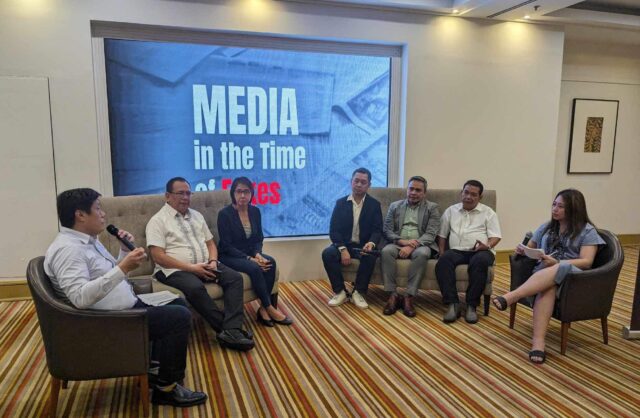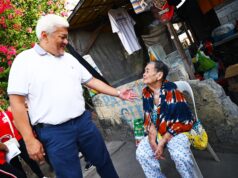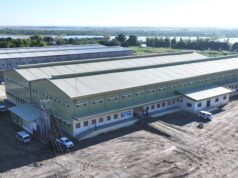
CLARK FREEPORT – The Philippine government has called on the public to adopt a “SAFER” culture to tackle the spread of fake news, advocating for critical thinking and media literacy to help Filipinos recognize falsehoods, with journalists playing a key role in the initiative.
Presidential Communications Office Assistant Secretary Wheng Hidalgo-Otida emphasized this during the seminar “Media in the Time of Fakes,” a regional workshop held by the National Press Club and supported by the Philippine Tobacco Institute held at the Quest Plus Clark Conference Center here on Nov. 8.
According to Hidalgo-Otida, the “SAFER” framework encourages individuals to “Suspect” by adopting a critical mindset, “Apprehend” by recognizing and exposing misinformation, “Filter” by checking sources and facts, “Educate” by promoting media literacy, and “Report” by holding creators of fake news accountable.
“The ‘SAFER’ mindset serves as a crucial guide for navigating today’s challenging information landscape. We must encourage a culture of critical thinking, where individuals are empowered to question, verify, and report suspicious information,” she said.
Hidalgo-Otida noted that the rapid pace of information sharing on social media makes it challenging to verify facts and counter false narratives before they spread widely. With 72% of Filipinos relying on Facebook as their primary news source, the population is particularly vulnerable to misinformation and disinformation.
In a separate presentation, veteran journalist and two-time National Book Award recipient Jose Torres Jr. highlighted the role of social media algorithms that prioritize engagement over accuracy, creating echo chambers that amplify misinformation.
“We need to put more initiative into investigative journalism and collaborate with technology platforms, so we can expose the sources of disinformation and disrupt their operations,” Torres said, underscoring the media’s watchdog role in identifying those behind disinformation campaigns.
Torres further noted that declining public trust in institutions has increased susceptibility to unreliable sources, making citizens’ roles in combating fake news even more crucial.
Fake news in the Philippines has been linked to political manipulation, particularly during the 2016 and 2022 elections, Hidalgo-Otida said. She noted that deliberate spreaders of fake news exploit online financial incentives by crafting sensationalist content as clickbait.
To address these challenges, the Philippine government, alongside other ASEAN countries, is working to develop guidelines for managing government information, focusing on source verification and transparency as countermeasures to fake news.
National Press Club president Leonel Abasola underscored the need for journalists to be vigilant in their role as guardians of truth amid the surge of fake news.
He emphasized that with social media algorithms prioritizing clicks over credibility, journalists have a responsibility to counter misinformation with verified, fact-based reporting.
Abasola called on his fellow journalists to adopt the “SAFER” culture in their work, not only as a guide for themselves but also as a model for the public to follow.
“Journalists must set the standard for critical thinking and accountability, showing the public how to question, verify, and responsibly share information,” he said.
Abasola urged all media practitioners to actively promote media literacy, collaborate on fact-checking efforts, and engage communities to support a future where truth prevails over sensationalism.
Meanwhile, PTI president Jericho Nograles drew parallels between the fight against fake news and the fight against illicit tobacco, which has severe socio-economic effects.
Since 2018, more than 178 illicit cigarette brands have been identified in the Philippines, Nograles noted. “Illicit trade not only robs the government of much-needed revenue but also undermines public health and security.”
Nograles called for greater involvement from law enforcement, stricter regulations, and public awareness to combat illicit trade.
Consumers need to be vigilant in identifying counterfeit tobacco, which often lacks tax stamps, graphic health warnings, and is sold at unusually low prices.
Rohbert Ambros from the Department of Agriculture – National Tobacco Administration urged consumers to report suspicious tobacco products. “Public awareness is key for consumer education and empowerment,” Ambros said. Press release




